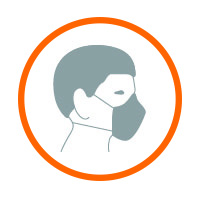Leptospirosis
Leptospirosis is a serious bacterial disease in dairy calves that can cause jaundice (liver disease), blood-stained reddish-brown urine, anaemia, fever and even death. In cows, leptospirosis can significantly reduce milk production and cause abortions or the delivery of weak or stillborn calves, which will have a major impact on productivity.
Infection can spread through a herd via contact with body fluids from infected animals, or through contaminated water supplies, pasture and soil. The organism can even be spread by flooding after heavy rainfall.
But leptospirosis isn’t just a problem for dairy herds. Infected animals can pass the infection to farmers and their families, resulting in severe flu-like symptoms, headaches, chills, and muscle pains. These symptoms can persist for weeks to months.

Find out about preventing Leptospirosis
Learn more about how to keep your calves healthy by vaccinating with Ultravac® 7in1 to help protect them (and you and your family) from leptospirosis and common clostridial diseases, like Blackleg, Tetanus, Pulpy Kidney, Black Disease and Malignant Oedema.